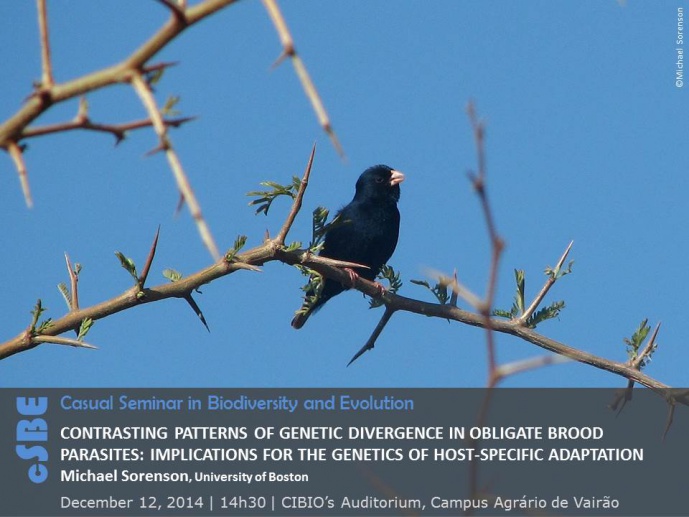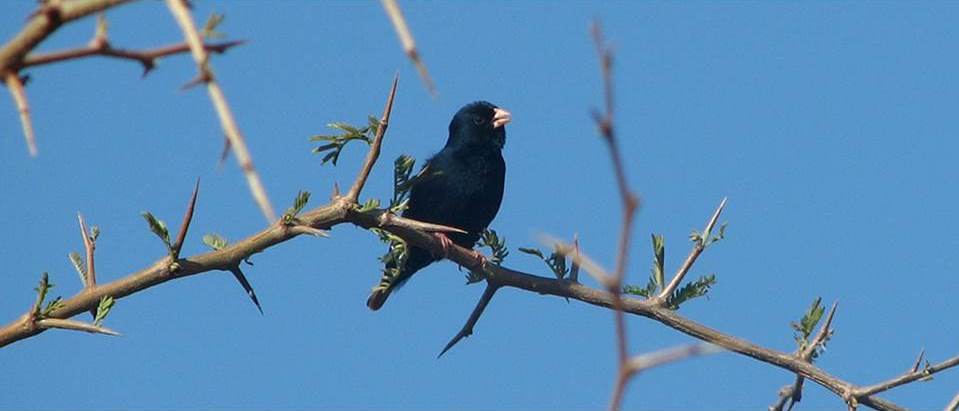CONTRASTING PATTERNS OF GENETIC DIVERGENCE IN OBLIGATE BROOD PARASITES: IMPLICATIONS FOR THE GENETICS OF HOST-SPECIFIC ADAPTATION

CASUAL SEMINAR IN BIODIVERSITY AND EVOLUTION

Comparative phylogenetic and population genetic analyses reveal strongly contrasting patterns of genetic divergence in different groups of parasitic birds, reflecting the role of behavior in shaping evolutionary processes. Indigobirds and other brood parasitic finches (genus Vidua) diversified recently and rapidly, with behavioral imprinting on hosts driving a process of speciation by host shift despite ongoing gene flow. In contrast, Spottiswoode et al. (2012, PNAS) recently reported the coexistence of highly divergent mtDNA haplotypes (~15% divergent in ND2 sequence) in the Greater Honeyguide (Indicator indicator); these ancient female lineages are perfectly associated with ground-nesting and tree-nesting hosts, respectively, but show little or no differentiation at nuclear loci. More recent analyses of other parasitic birds surprisingly reveal a similar pattern, suggesting that highly divergent female lineages have adapted to different hosts, expressing divergent phenotypes for traits that influence fitness. These results will be discussed in light of alternative hypotheses for host-specific adaptation without speciation, including maternal inheritance of egg traits and “divergence-with-gene-flow” between partially isolated populations.
Michael Sorenson earned his PhD in Ecology, Evolution and Behavior at the University of Minnesota before going on to do postdoctoral research at the Smithsonian Institution and University of Michigan. He is currently a Professor of Biology at Boston University and, since 2010, has served as Chair of his department. Michael is an ornithologist and evolutionary ecologist with long-standing interests in brood parasitism, which has been the focus of much of his research efforts over the past 30 years. Michael is known for research that uses molecular genetic data in studies of the evolutionary ecology and phylogenetic history of brood parasitic birds (and other organisms). He has enjoyed opportunities to conduct fieldwork on ducks in Canada and the Bahamas, and on estrildid and parasitic finches in various African countries and Papua New Guinea. Professor Sorenson will share some new results that help solve a longstanding scientific question.
[Host: Gonçalo Cardoso, Behavioural Ecology]
Image credits: Michael Sorenson